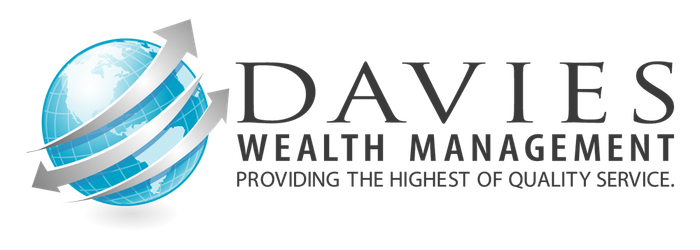
Lan Nguyen Chaplin and Mike Chisholm
March 18, 2025
If you have ever accepted a modest raise, taken on a lateral move or agreed to an additional project despite your full workload — all while feeling grateful for your manager’s recognition, yet silencing your true ambitions for fear of seeming ungrateful — you have experienced one of the pitfalls of excessive gratitude, without even realizing it.

iStock image
Falling into a gratitude trap can make us complacent and hinder professional development by creating a barrier to effective self-advocacy. As you embark on or continue your gratitude practice, be mindful of these three pitfalls — and learn how to avoid them.
PITFALL #1: BECOMING CONTENT WITH THE STATUS QUO OR SETTLING FOR LESS
Let’s say you get a chance to contribute to an important project. While it’s an exciting opportunity, it’s not exactly what you hoped for. You really aspired to lead this project. You might think to yourself, “I should be grateful I’m on the project. I’m better off than those who didn’t get this chance at all.” This is a classic example of downward social comparison, wherein gratitude can lead you to compare your situation favorably to others who may be less fortunate. While this perspective can be valuable at times, it can also be a barrier to self-improvement and advocacy.
HOW TO AVOID THIS PITFALL:
To avoid complacency and missed opportunities, understand that self-promotion is essential for career growth, and recognize that aspiring for more does not negate gratitude for present circumstances. In fact, aspiring for more reflects a healthy ambition and a desire for continuous improvement.
In a situation like this, engage with your manager to discuss your professional journey by highlighting your capabilities. Affirm your commitment to your ongoing project’s success. Then, clearly articulate your aspirations using “I statements.”
“I statements” allow you to express your perspective assertively while helping listeners understand your viewpoint without feeling attacked, facilitating clearer communication. They also enhance emotional intelligence by increasing awareness of your own emotions. For example, instead of saying “You don’t give me enough stretch projects,” reframe this statement: “I feel ready to take on more challenging assignments that expand my skill set, and I’d like to discuss how I can contribute more to the team.”
PITFALL #2: AVOIDING CRITICAL CONVERSATIONS
An overemphasis on gratitude can make you hesitant to voice legitimate concerns, potentially missing opportunities for improvement. For instance, you may feel hesitant to broach topics such as racism, sexism, or discriminatory behaviors with those in positions of authority or influence, such as managers, donors, founders or board members because you feel it is expected of you to be grateful for the support they have given you. Or you might hesitate to tell your manager that you might be experiencing burnout fearing you’ll appear ungrateful for the opportunity to work on important projects.
HOW TO AVOID THIS PITFALL:
Expressing appreciation for opportunities or support doesn’t preclude addressing uncomfortable topics, including systemic issues. One way to avoid this pitfall is by adjusting your mindset to focus on what you have earned (“I’m grateful my manager recognized my high performance and assigned this project to me”) more than what you have been gifted (“I’m grateful my manager gave me the opportunity to work on this project”). This shift in mindset can help you feel empowered to have difficult conversations with your manager.
For example, to address concerns about equity, you can try to frame necessary reforms as commitments to shared values rather than personal attacks on any individual or the leadership team. You could say, “Thank you for fostering a culture where feedback is valued, and we feel heard. To embody our commitment to inclusion, I’d like to work with you to address how promotion timelines disproportionately impact caregivers.” This approach creates a foundation of goodwill that can facilitate challenging conversations while aligning your concerns with the company’s broader mission, increasing the likelihood that your suggestions will be well-received and acted upon.
When discussing workload concerns with your supervisor, present concrete data demonstrating how your capacity has been exceeded. For instance, if you are experiencing burnout risks due to competing priorities, you might say: “I aim to maintain high-quality output on our key projects; however, my current workload is creating conflicting demands. I have three project kickoffs over the next 10 days. And each requires a prep of at least three days. Perhaps we could review organizational priorities to identify tasks that could be temporarily scaled back or reassigned, ensuring that I focus on the most critical areas and perform at high standards without experiencing burnout.”
PITFALL #3: MASKING NEGATIVE EMOTIONS
While gratitude can be a powerful tool for well-being, an excessive focus on positivity can sometimes lead to emotional suppression. This phenomenon, often termed “toxic positivity,” occurs when gratitude practices are used to bypass or minimize legitimate concerns and negative experiences. Research also shows that individuals may experience cognitive dissonance when they feel compelled to project positivity despite experiencing negative emotions. By constantly seeking silver linings, you may unintentionally avoid confronting difficult emotions or addressing the underlying issues that are contributing to them.
Say, you’re entrusted with every high-profile project on the team and that makes you feel proud, accomplished, and valued. But you also feel frustrated and overwhelmed at the sheer quantum of that work. You work weekends and nights to get through your to-do list. But you choose not to voice this because you’re grateful for the immense flexibility your manager has extended to you, which has made it easier for you to manage work and life responsibilities.
HOW TO AVOID THIS PITFALL:
Remember that it’s normal to have a multitude of emotions and that all emotions are valid and serve a purpose, even the uncomfortable ones. Having the courage to feel negative emotions can be empowering — it can be the fuel you need to push for change.
Setting boundaries is an essential part of this process and it involves clearly communicating your limits and needs to others. For example, in the situation above, you can express your appreciation for another opportunity while transparently outlining how you feel about your current workload. You might say: “Thank you for considering me for another exciting opportunity. I’m eager to start, but I’m also committed to excelling in my current work on [projects]. It’s been challenging managing the competing deadlines for these three projects, and I was wondering if you could help me figure how we should we sequence this new initiative?”
c.2025 Harvard Business Review. Distributed by The New York Times Licensing Group.
This HBR article was legally licensed through AdvisorStream.


